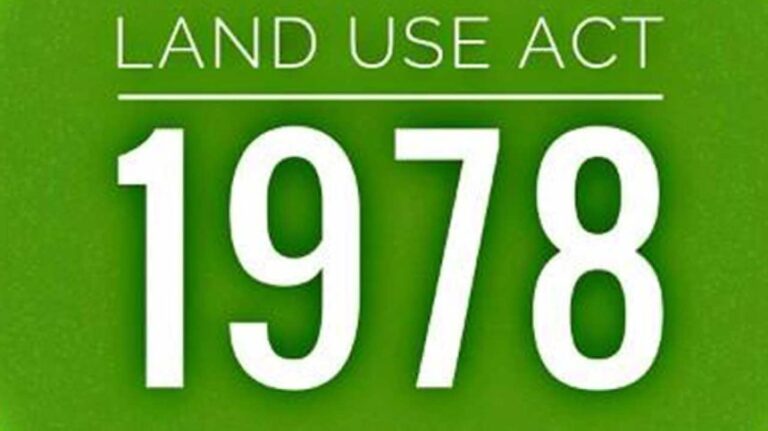Securing Your Slice of Lagos: A Lawyer’s Essential Steps for Buying Land
Lagos, Nigeria’s vibrant economic powerhouse, is a city of dreams, opportunities – and unfortunately, sometimes, land disputes. Buying land in this bustling metropolis can be an incredibly rewarding investment, but it’s also fraught with potential pitfalls for the unwary. As a lawyer, I’ve seen firsthand how crucial proper due diligence is to avoid heartbreak, financial loss, and protracted legal battles.
This isn’t just about handing over money; it’s about securing a tangible asset with a clean title. Here are the critical steps you must take, from a legal perspective, to ensure your land purchase in Lagos is safe and sound:
1. Verification of the Seller’s Identity and Capacity
Before you even look at the land itself, scrutinize the seller.
* Individual Seller: Obtain a valid means of identification (National ID Card, Driver’s License, International Passport) and verify its authenticity. If the seller is acting through a Power of Attorney (POA), ensure the POA is valid, properly executed, and registered. Critically, confirm the grantor of the POA is alive and has not revoked it.
* Corporate Seller: Request the company’s Certificate of Incorporation, Memorandum and Articles of Association (MEMART), and a Board Resolution authorizing the sale and designating who can sign on behalf of the company. Conduct a Corporate Affairs Commission (CAC) search to confirm the company’s registration status and the identity of its directors.
* Family/Communal Land: This is often where disputes arise. Ensure all principal members of the family/community are involved in the sale and consent to it. Obtain their valid IDs and be wary of “middlemen” who may not have proper authority. A Family/Community Consent Form signed by all relevant parties is essential.
2. Comprehensive Due Diligence on the Land Itself
This is the most critical phase and where a lawyer’s expertise is indispensable. Do NOT skip or rush this.
* Physical Inspection of the Land:
* Visit the site multiple times, at different times of the day.
* Ascertain if the land is free from existing occupation or encumbrances (e.g., squatters, existing structures, fences, boundary disputes).
* Check the terrain and accessibility.
* Speak to neighbors (discreetly) about the ownership history and any known disputes.
* Confirm the size and boundaries using a qualified surveyor.
* Title Verification (The Most Important Step):
This involves confirming the seller’s legal right to sell the land.
* Demand Title Documents: Request copies of all relevant title documents from the seller:
* Certificate of Occupancy (C of O)
* Governor’s Consent
* Deed of Assignment/Conveyance
* Survey Plan
* Receipts of previous transactions or payments (if applicable)
* Conduct a Search at the Lagos State Lands Registry: Your lawyer will conduct a thorough search to:
* Verify the authenticity of the C of O or other title documents.
* Confirm that the property is not encumbered by a mortgage, government acquisition, or any other third-party interest (e.g., judgment liens, caveats).
* Ascertain the actual size and location of the land as recorded in official government records.
* Check for any previous transactions or legal notices concerning the land.
* Verify at the Surveyor General’s Office: Cross-reference the survey plan to ensure it’s authentic and the land is not within a government-acquired area or committed land. This step is non-negotiable in Lagos.
* “Gazette” Verification (for Excised Villages): If the land falls within an excised village, verify that the excision has been officially gazetted. Lands within non-excised areas or those still under government acquisition are highly risky.
3. Negotiate Terms and Prepare the Agreement
Once due diligence provides a clean bill of health:
* Negotiate Price and Payment Plan: Agree on the purchase price and how payments will be structured.
* Draft the Deed of Assignment: Your lawyer will draft this crucial document. It’s the legal instrument that transfers ownership from the seller to you. It must clearly state:
* Full particulars of the parties.
* Detailed description of the property (including size, location, and survey plan details).
* The agreed purchase price.
* Covenants and warranties from the seller (e.g., warranting they have the right to sell and the property is free from encumbrances).
* Indemnity clauses.
* The “Habendum” clause (the “to have and to hold” part).
* Execution clause.
* Witnessing: Ensure all parties and their witnesses (typically, lawyers) sign the Deed of Assignment.
4. Payment and Exchange of Documents
* Payment: Make payments directly to the seller or their designated bank account, preferably via bank transfer for an audit trail. Avoid cash payments.
* Collect Original Documents: Upon full payment, ensure you collect all original title documents from the seller, including the previously used Deed of Assignment, C of O (if any), Survey Plan, and any other relevant permits or receipts.
5. Perfection of Title
This is the final, crucial step to officially register your ownership with the Lagos State Government. Without perfection, your title is not fully recognized in law, and you cannot use the property as collateral or easily transfer it in the future.
* Apply for Governor’s Consent: This is mandatory for all land transactions in Lagos. Your lawyer will apply to the Lagos State Governor (through the Lands Bureau) for consent to the assignment. This involves paying various levies and charges, including:
* Consent Fees
* Stamp Duties
* Registration Fees
* Capital Gains Tax
* Stamping of the Deed: After obtaining Governor’s Consent, the Deed of Assignment must be stamped by the relevant tax authority (e.g., Lagos State Internal Revenue Service – LIRS) to make it admissible in court as evidence.
* Registration of the Deed: Finally, your lawyer will register the stamped Deed of Assignment at the Lagos State Lands Registry. This formally records your ownership and updates the government’s land records. You will receive a copy of the registered Deed with a registration number.
A Word of Caution: Red Flags to Watch Out For
* “Too Good to Be True” Deals: Be extremely wary of unusually low prices for land in prime areas.
* Pressure to Pay Quickly: If a seller rushes you or discourages due diligence, walk away.
* Absence of Original Documents: Never proceed without seeing and verifying original title documents.
* Vague Land Descriptions: Insist on a clear, registered survey plan.
* Unwillingness to involve Lawyers: If the seller pushes back on involving legal counsel, this is a major red flag.
Conclusion
Buying land in Lagos is a significant investment that requires meticulous planning and execution. While the process can seem complex, engaging a competent and trustworthy lawyer from the outset is your strongest safeguard. They will guide you through each step, conduct the necessary searches, draft robust agreements, and ensure your title is properly perfected.
Remember, a little upfront investment in legal fees can save you a fortune in potential disputes and losses down the line. Secure your peace of mind – and your piece of Lagos – by following these essential legal steps.







